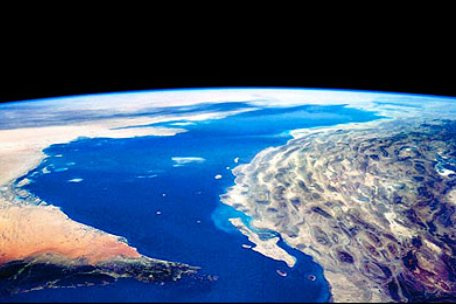Another war in Persian Gulf will be catasrophic

Once again, Iran is at the center of world attention. During the last couple of weeks, a chain of action and reaction by U.S. and some European countries on one side and Iran on the other have created an atmosphere of tension in the Persian Gulf region causing anxiety in the oil market. After months of discussions, the United States and its allies have decided to sanction the Central Bank of Iran and punish those countries still buying Iran’s oil and gas. In return, Iran started a military drill in the Persian Gulf and some Iranian officials threatened to close the Strait of Hormuz in the event Iran is denied to sell its oil.
The news that Iran has begun enriching uranium at Fordo which is a heavily fortified underground facility and Mr. Ahmadinejad’s visit to Latin America as well as sentencing an Iranian-American to death for spying charges have added to the problem giving an excuse for anti-Iran lobby in the West to claim that the latest round of saber rattling from Iran is dangerous and in fact Iran is inviting a conflict with the U.S. and its allies.
What is all the fuss about Iran’s ‘provocation’ in recent weeks which has provided an opportunity for certain quarters in the West and Israel to talk about Iran’s immediate threat to regional and international security? In order to set the record straight, we have to differentiate between what is wrong that needs to be corrected and what is not wrong.
The recent Iranian military exercise in its Southern waters is not something new. Iran has, on regular basis, performed military exercises across the country including in the Persian Gulf area and all Iranian officials support this practice which is needed for the defense of the country. However, the same does not hold true with regard to closing of the Strait of Hormuz.
In addition to the legal argument on the validity of the closure which some lawyers support referring to the threat posed by the West against the export of Iranian oil from the Strait, and some reject because of the disruption of the free flow of oil in international waters as a result of the closure, Iran’s official position in this regard is to keep open the Strait of Hormuz for the benefit of all concerned. The position of Iran’s Minister of Defense, a few days ago, that Iran did not want to close the Strait of Hormuz is the latest position of Iran on the issue.
The enrichment of uranium in the Fordo facility should not cause concern for other countries because of the fact that the enrichment is under 24 hour surveillance of the IAEA monitoring and if there is going to be any attempt at wrongdoing in this facility, IAEA will immediately be aware of it. The case of an Iranian-American individual charged with espionage activities is being followed within the Iranian judicial system and it seems that the defense will appeal the initial verdict. The visit of Ahmadinejad to Latin America has nothing to do with the current problems with the U.S. or the nuclear issue.
Now the question is why once in a while some anti-Iran circles especially in America and Israel argue that it would be disaster for the entire humanity if Iran got nuclear weapons. Why do some feel that their interests are better served with turmoil and chaos than dialog and understanding? It is interesting to note what the Chairperson of the U.S. House Foreign Affairs Committee, Rep. Ileana Ros-Lehtinen, said recently, "The Iranian threat is entering a new, even more dangerous stage." She added, "An Iran with a nuclear breakout capability is an Iran with a nuclear weapon. We cannot delude ourselves into thinking we have time to spare."
The Republican candidates running for president this year, except for Ron Paul, have the same attitude. Here is what the Republican front runner, Mitt Romney said during his campaign recently: "If we reelect Barack Obama, Iran will have a nuclear weapon, and if you elect Mitt Romney, Iran will not have a nuclear weapon." The U.S. Secretary of Defense, Leon Panetta talked more implicitly along the same line. "Are they trying to develop a nuclear weapon? No," Panetta said. "But we know that they're trying to develop a nuclear capability. And that's what concerns us. And our red line to Iran is, 'Do not develop a nuclear weapon.' That's a red line for us. I think they need to know that ... if they take that step, that they're going to get stopped.”

